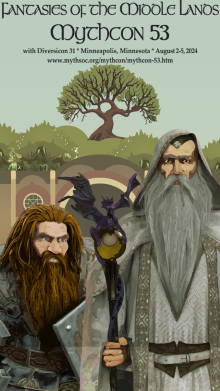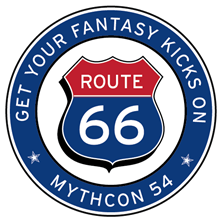Loading...
Location
Minneapolis, Minnesota
Document Type
Presentation
Event Website
https://www.mythsoc.org/mythcon/mythcon-53.htm
Start Date
2-8-2024 2:30 PM
End Date
2-8-2024 3:20 PM
Description
How do Chinese translators of Tolkien translate the name “Middle-earth” without confusing it with China itself (Zhongguo, or “central kingdom”)? China is a nation which named itself the center of the world, and centrality is never a neutral or apolitical claim. “Middle/central kingdom” signifies a traditional conception of geopolitical power in concentric rings: from emperor, to capital city, to zones nearer to or further from the capital. This paper borrows from the tradition within Religious Studies of theorizing claims to centrality (Eliade, J. Z. Smith) and centrality in Chinese political symbolism (Meyer, Wheatley, Wu Hung, Walsh). Here I primarily consider three full translations of LOTR: by multiple translators for the Yilin Press, 2001; by Zhu Xueheng, 2001; by Deng Jiawan, 2012. Middle-earth is never named zhongguo, because it is not a kingdom (guo) but several domains, plus vast areas apparently unclaimed—the “Empty Lands.” One option is zhongtu dalu, middle/central land/ earth continent/mainland. “Mainland” (dalu) is itself a loaded term in contemporary politics. A second term is zhongzhou, middle/central plus zhou which can mean landmass, province, or continent. A third option is zhongtu shijie, the middle/ central land/earth world. All of these contain the character zhong (middle/central). Each has distinct nuances and connotations. Drawing from recent work in Translation Studies, this paper explores the creative possibilities of linguistic difference, and the interlingual relations of Anglo-, Euro-, and Sino-centrism, perhaps related to the “Little England” xenophobia of the Shire, or the quasi-imperialistic status of Gondor. I will evoke how the Chinese terms may reflect back on the original. This paper will 17 also briefly consider other notions of middleness in the Chinese translations, such as “the Middle days are passing,” “the valour of [Aragorn’s] manhood” (translated in each case as “middle years”), and Faramir’s remark that the Rohirrom “are become Middle Men.”
Creative Commons License

This work is licensed under a Creative Commons Attribution-NonCommercial-No Derivative Works 4.0 International License.
Included in
Middles and Centers in Chinese translations of Tolkien
Minneapolis, Minnesota
How do Chinese translators of Tolkien translate the name “Middle-earth” without confusing it with China itself (Zhongguo, or “central kingdom”)? China is a nation which named itself the center of the world, and centrality is never a neutral or apolitical claim. “Middle/central kingdom” signifies a traditional conception of geopolitical power in concentric rings: from emperor, to capital city, to zones nearer to or further from the capital. This paper borrows from the tradition within Religious Studies of theorizing claims to centrality (Eliade, J. Z. Smith) and centrality in Chinese political symbolism (Meyer, Wheatley, Wu Hung, Walsh). Here I primarily consider three full translations of LOTR: by multiple translators for the Yilin Press, 2001; by Zhu Xueheng, 2001; by Deng Jiawan, 2012. Middle-earth is never named zhongguo, because it is not a kingdom (guo) but several domains, plus vast areas apparently unclaimed—the “Empty Lands.” One option is zhongtu dalu, middle/central land/ earth continent/mainland. “Mainland” (dalu) is itself a loaded term in contemporary politics. A second term is zhongzhou, middle/central plus zhou which can mean landmass, province, or continent. A third option is zhongtu shijie, the middle/ central land/earth world. All of these contain the character zhong (middle/central). Each has distinct nuances and connotations. Drawing from recent work in Translation Studies, this paper explores the creative possibilities of linguistic difference, and the interlingual relations of Anglo-, Euro-, and Sino-centrism, perhaps related to the “Little England” xenophobia of the Shire, or the quasi-imperialistic status of Gondor. I will evoke how the Chinese terms may reflect back on the original. This paper will 17 also briefly consider other notions of middleness in the Chinese translations, such as “the Middle days are passing,” “the valour of [Aragorn’s] manhood” (translated in each case as “middle years”), and Faramir’s remark that the Rohirrom “are become Middle Men.”
https://dc.swosu.edu/mythcon/mc53/schedule/6


